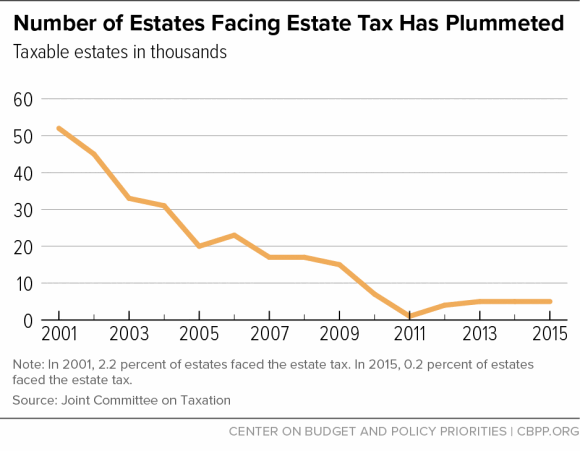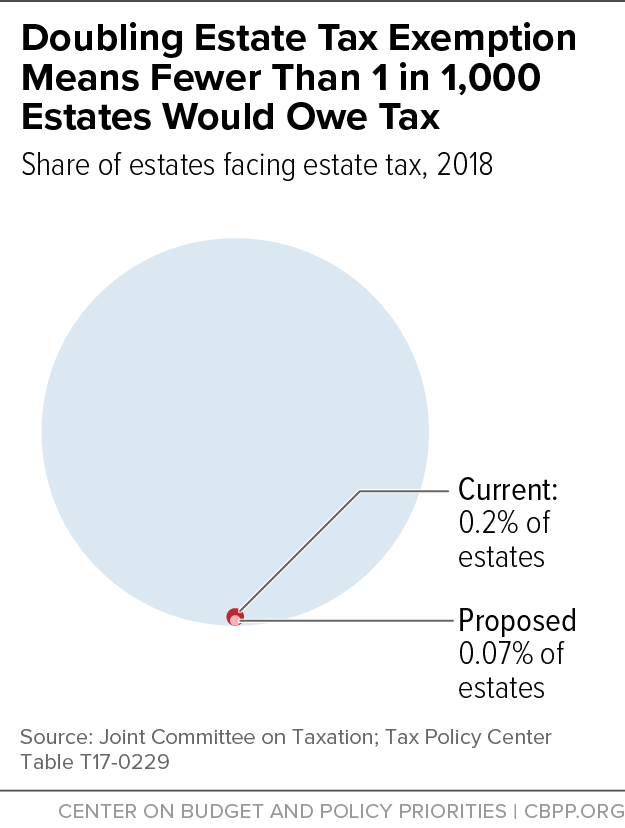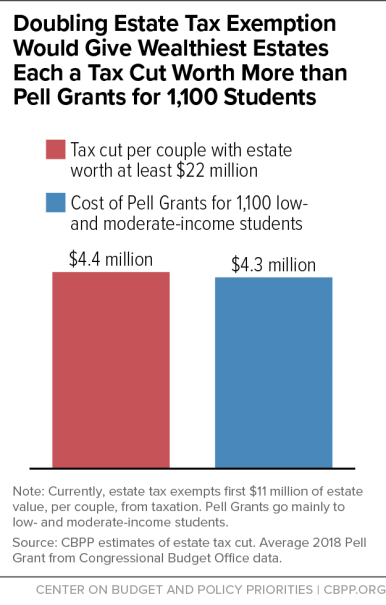BEYOND THE NUMBERS
Doubling Estate Tax Exemption Would Give Windfall to Heirs of Wealthiest Estates
Senate Finance Committee Chairman Orrin Hatch’s new tax bill would double the value of estates that’s exempt from the estate tax, from $11 million per couple ($5.5 million per person) to $22 million per couple ($11 million per person). That would:
Cut the share of estates facing the tax from 2 in 1,000 to fewer than 1 in 1,000. Even today, only the largest 0.2 percent estates face the tax; the other 99.8 percent face no estate tax at all. Policymakers have dramatically raised the exemption level in recent decades (from $675,000 per person in 2001), so far fewer estates are large enough to be taxable. (See first chart.)
Doubling the exemption level would reduce the share of estates facing the tax from 0.2 percent to 0.07 percent, leaving only 1,800 estates nationwide facing the tax, estimates from the Joint Committee on Taxation and Tax Policy Center show. (See second chart.)
Give each of the 1,800 very largest estates a tax cut of $4.4 million per couple. Doubling the exemption would eliminate the estate tax for estates worth between $11 million and $22 million per couple, and would give estates worth over $22 million per couple (all those left facing the tax) a tax cut of $4.4 million apiece — 40 percent of the additional $11 million in assets that would be exempt. That’s because the 40 percent statutory estate tax rate applies only to amounts above the exemption level.
To put that $4.4 million tax cut in perspective, it’s about the same as the cost of Pell Grants for 1,100 low- and moderate-income students to help them afford college. (See third chart.)
A number of Senate Republicans, including Hatch, Susan Collins, Mike Rounds, and Jeff Flake, have said that repealing the estate tax — as the tax plan before the House Ways and Means Committee would do — isn’t a high priority. They’re right, especially given the nation’s growing fiscal challenges and wealth inequality. But neither is giving heirs of the wealthiest estates a huge tax cut by doubling the estate tax exemption.



